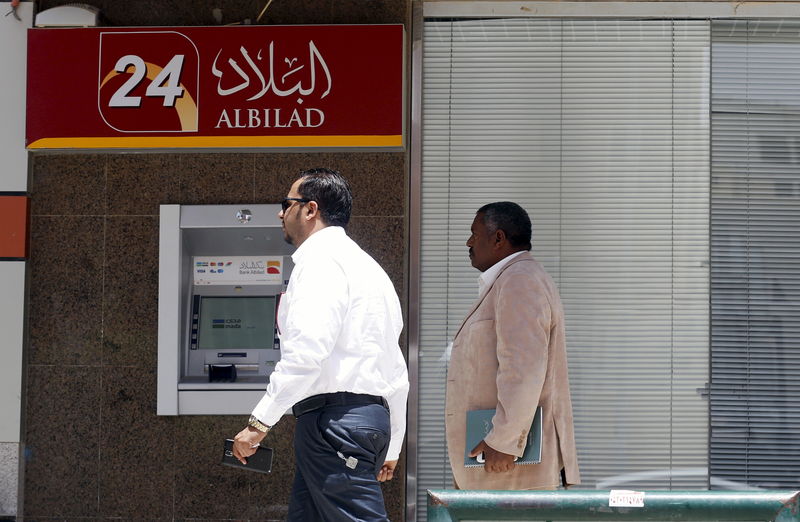By Tom Arnold and Davide Barbuscia
DUBAI (Reuters) - Middle East investment companies are ramping up their lending to businesses, providing a lifeline for small and medium-sized firms struggling to secure finance from banks that tightened credit after a suffering rise in bad loans.
Industry participants estimate non-bank lenders in the region could provide around $1 billion over the next three to five years, including secured loans, mezzanine debt, preferred shares and convertible loans and bonds.
That's a small slice of the global industry; private debt funds, the other name for non-bank lenders, distributed $58 billion in capital worldwide in the first half of 2016, according to financial data firm Preqin.
But a growing number of Middle Eastern borrowers are considering non-bank finance, alongside other "shadow banking" options such as private equity, venture capital funds and peer-to-peer lending.
In the Gulf, "low oil prices have caused lower liquidity in the market, and combined with more onerous capital requirements for banks, this has led to a decline in the financing available to mid-market companies," said Mirza Beg, managing director of private debt at Waha Capital.
"This situation is creating more opportunities for private debt players like us."
United Arab Emirates-based asset management firm Waha branched into private debt last year, offering conventional and sharia-compliant finance for healthcare, logistics, consumer and business services firms in the Middle East, Africa and Turkey.
Many banks in the Gulf have tightened their policies on lending in the past two years as low oil prices and sluggish economic growth aggravate non-performing loans.
Some banks have also become less able to lend because of pressure on their balance sheets from new regulations, including global Basel III requirements from the Bank of International Settlements and the International Financial Reporting Standards Board's IFRS 9 accounting rule.
New bankruptcy rules, introduced in the UAE late last year and being planned in Saudi Arabia, may force banks to recognize bad loans more promptly.
"From an investment perspective, these factors excite us the most as they are forcing a fundamental shift in the recognition of bad loans, and a cultural change in the restructuring of troubled companies," said Ahmad Alanani, chief executive at Sancta Capital Group, an investment firm focusing on the Middle East and Africa.
Walid Cherif, founder of the private debt business at UAE-based Gulf Capital, said access to working capital was the biggest issue facing an increasing number of companies, especially as some government clients had cut payments to firms in the past 18 months.
"We are seeing business that we talked to two years ago that weren't interested, coming back and talking to us again."
Non-bank lenders can provide companies with the five- to six-year funding that they need to grow, rather than shorter-term bank facilities, Cherif added.
UAE-based financier Shailesh Dash, who plans to set up a mezzanine financing company in November with the aim of lending up to $500 million over five years, sees another factor driving demand for non-bank funding: the inability of many companies to meet banks' demand for assets as security for loans.
Many tech start-ups are light on assets but have cash flows, against which non-bank lenders are happy to provide finance.
Private debt players say the structure of their deals - which often let them convert debt into equity in the event of a default - mean they sometimes have a better chance than banks of getting their money back in the event of difficulty.
Outdated insolvency laws in the Middle East have meant banks often struggle to recover cash or assets from businesses under stress. In the UAE, the process should become smoother under the new bankruptcy law, although the law is so far largely untested.
"If things go badly, we will step in and become an equity holder and provide capital if necessary and if there's a good chance of the business turning around," said Cherif.
